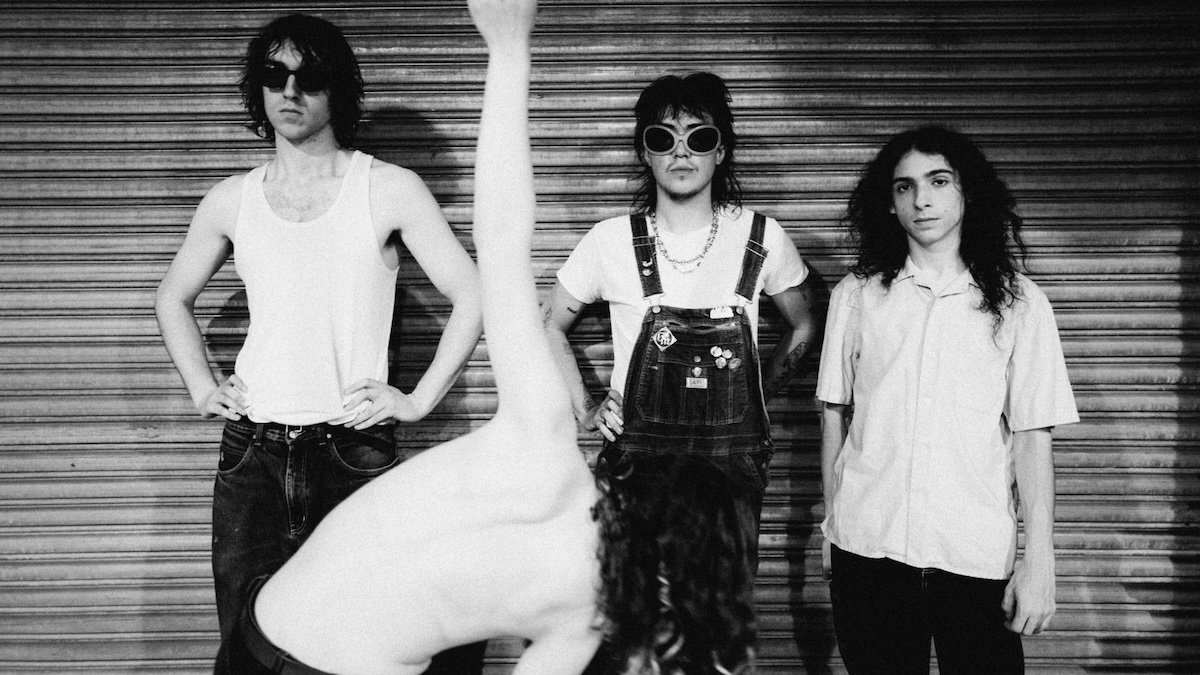Don’t let the title of their new album, Getting Killed, fool you — Geese are very much alive. After bursting onto the scene as scrappy teenagers, dropping the post-punky Projector (and nabbing a CoSign for it), the band’s trajectory has only gone in the right direction. They first leveled up their songwriting with the more warm-blooded 3D Country and, late last year, frontman Cameron Winter dropped one of the buzziest solo debuts in recent memory with the excellent Heavy Metal. Now, Winter is back with the band for Getting Killed, and not only is it Geese’s best offering yet, it might just be one of the most creative indie rock records of the 2020s.
Getting Killed feels like Geese breaking their previous molds, gluing them back together with a certain level of reckless abandon, and seeing what new shapes of guitar music come out of it. Whereas their first release leaned on slick grooves and vibes that borrowed from New York City’s indie rock past (think Interpol or The Strokes) and their second album found them carving out a heart-on-their-sleeve silliness that felt more true to themselves, the new set blasts the conception of the band wide open; it’s a voice that, while indebted to trailblazers of the past, is all their own.
Take opening cut “Trinidad,” which effectively sets the tone for what’s to come. Guitarist Emily Green attacks each ear independently with warbly, borderline funky licks mixed in harsh stereo. Winter then enters softly, tapping into his falsetto, only for the whole thing to explode on a dime with horns, new tracks of instrumentation that cut in and out like they’re malfunctioning, and screams of, “THERE’S A BOMB IN MY CAR!” As the tune progresses, it only becomes increasingly chaotic with heavily delayed vocal lines, more hard-panning, and drummer Max Bassin’s multilayered percussion, which sounds like an earthquake hit a middle school band room. On paper, it sounds like a track at risk of being an incoherent mess; in your headphones, it sounds absolutely exhilarating.
Related Video
The wildness of the production is something Winter struck gold with on Heavy Metal. On that largely piano-based project, Winter found beauty in uncommon timbres, loose feels, and bizarre recording techniques. (The man himself has claimed he recorded parts in various Guitar Centers, enlisted the help of Craigslist musicians, and had a five-year-old play bass — though at least some of this has proven to be Winter doing some Bob Dylan-esque mythologizing.) While that resulted in a uniquely intimate feel for his solo venture, utilizing similar tactics with his rock band manifests in a live wire of a record. The edges are perfectly frayed, and there’s an anxious excitement that, at any moment, it might all fall apart. It’s a mode that feels aligned with early Velvet Underground or Iggy and The Stooges, where the pursuit of studio perfection is swapped out for character, intrigue, and damn fine songwriting.
Later tracks like “100 Horses” and “Half Real” pull off such tricks to spectacular results, with the latter even starting out with a few seconds of drone that almost sounds like a direct reference to “Venus in Furs.” “Husbands” similarly finds an unconventional groove, upon which it builds a song-long crescendo, while “Bow Down” turns a staccato riff into an off-kilter dance party before a false ending leads to a groovy guitar solo. Tracks like these play with the same genres Geese have expressed interest in before — post-punk, funky rock ‘n’ roll, classic rock, artsy indie music — though this is the quartet’s most compelling synthesis of those styles yet.
The same praise can be applied to the tunes on Getting Killed that play it softer and sweeter. “Cobra” is breezy and boasts a Beach Boys-esque sonic palette, the wonderfully titled “Au Pays du Cocaine” trots along at a pace that spotlights Winter’s expressive baritone, and “Islands of Men” slowly develops its sunny vibes over the course of six minutes as bassist Dominic DiGesu walks up and down his fretboard. That song, in particular, feels functionally reminiscent of “Pacific Theme” from Broken Social Scene’s You Forgot It in People, and not just for the tropical titling, but rather for it’s pacing, instrumental development, and placement in the tracklist.

